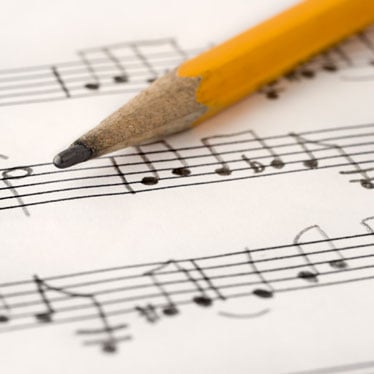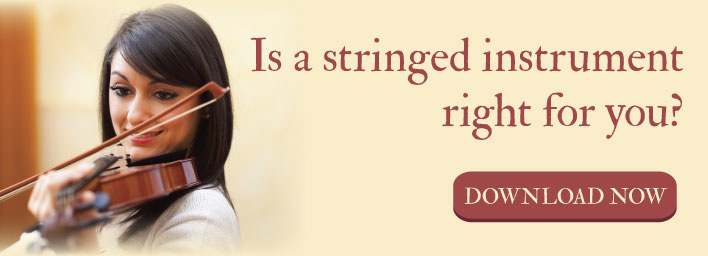
Even for an experienced musician, the idea of writing your very own music may seem like a pipe dream. In truth, musical composition requires a different set of skills than playing an instrument. Composers are often well-versed in one or more instruments, but some rely upon steadfast musical rules and concepts to write music for other musicians. Fortunately, there are many great tools to help you get started with composition no matter where you are in your musical journey.
Learning the Language
Musical notation is a language much like any other written language. In order to convey your intent to the musician, you must know how to read and write the sounds you want them to play. That's why the first step toward becoming a composer is to learn how to sight read music, and understand what all of the various symbols mean. As you study various styles and genres of music you will learn to spot the differences in the notation of the music as well.
Getting Familiar with the Rules
Within music, there is a certain set of guidelines that are followed to create generally pleasing sounds. This includes certain chord progressions, mathematical relationships between notes, timing, melody, and more. The study of these rules generally falls under Music Theory, and there are dozens of courses available to teach these concepts and help you put them to use.
Using the Right Tools
Once you're familiar with the building blocks of great composition it is time to start testing the waters on your own. For many years, composers have had to rely on plain paper and pencils to write their pieces using only their knowledge of musical concepts. Then they would have to play their score back to themselves to determine whether or not the parts fit before making revisions.
With modern technology, this process has been simplified drastically. For instance, Quaver Music has a free composition tool geared toward younger students. This software already knows the most common rules of music theory and helps guide students through the process of selecting appropriate chords and elements.
In addition to these simple composition training programs, there has been a huge explosion of composition apps designed to help creators work on their compositions on-the-go, and give them the ability to share their work with other talented composers worldwide. Noteflight is one such app that can be used on any smartphone, tablet, or desktop computer completely free, and gives you the ability to write performance-ready scores with the click of a button.
For more advanced features, you may upgrade to Noteflight's premium subscription, which includes the ability to playback your music using a built-in mixer and record your music on your own. Some of the most advanced and costly apps allow you to play music directly into the program, and it will notate your playing for you. This can be a great feature if you are not sure how to go about notating the music you hear in your mind.
GarageBand is a free software available on Macs and has become a standard in the music industry. Read our tutorial that shows you how to begin composing in this software. When you are ready, check out our intermediate tips here.
Finally, Ensemble Composer is a handy Android app for new composers that allows you to write with up to 15 instruments. The interface is very simple to use and you can quickly write and edit your music in minutes. There is a Pro upgrade, but the basic app is more than enough to get you started.
When it comes to selecting great tools for composition, you should take the time to compare your options side-by-side. Some programs are very rigid and only allow you to use a basic staff for composition. Others include the ability to create separate printouts for each instrument, translate your music into guitar tabs, and much more.
Practice, Practice, Practice
The only way to truly hone your musical composition skills is to practice writing a variety of different musical pieces. As you find your own unique musical voice and get more comfortable using the tools at your disposal, your sense of composition will become more intuitive and you will be able to receive helpful critiques from other composers online and in your personal network.

